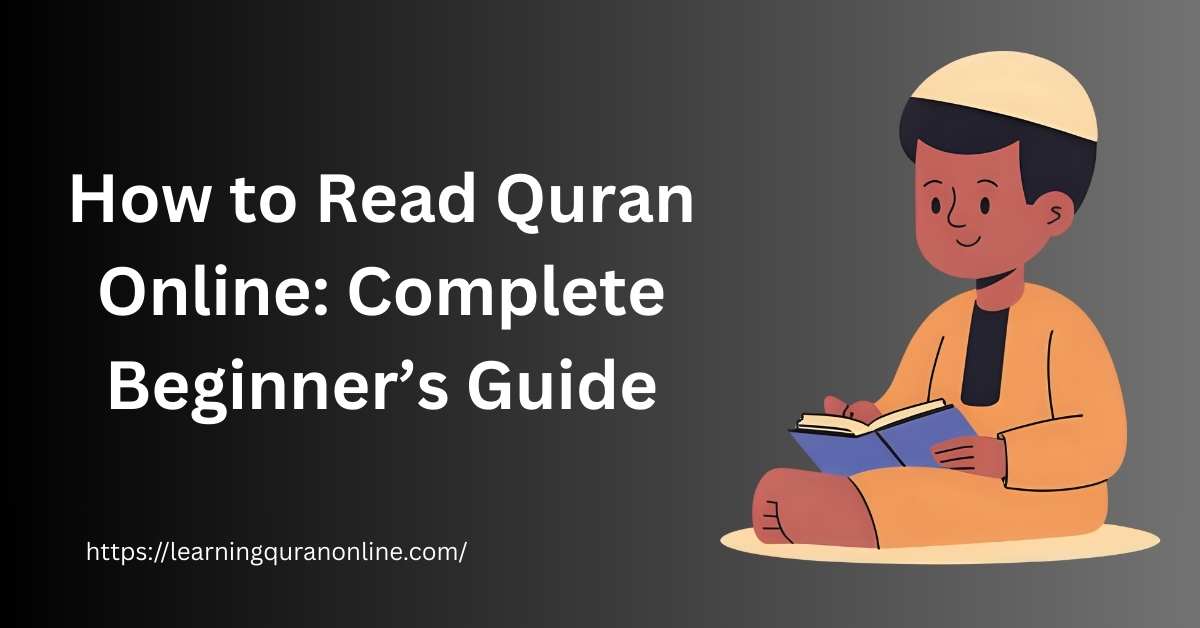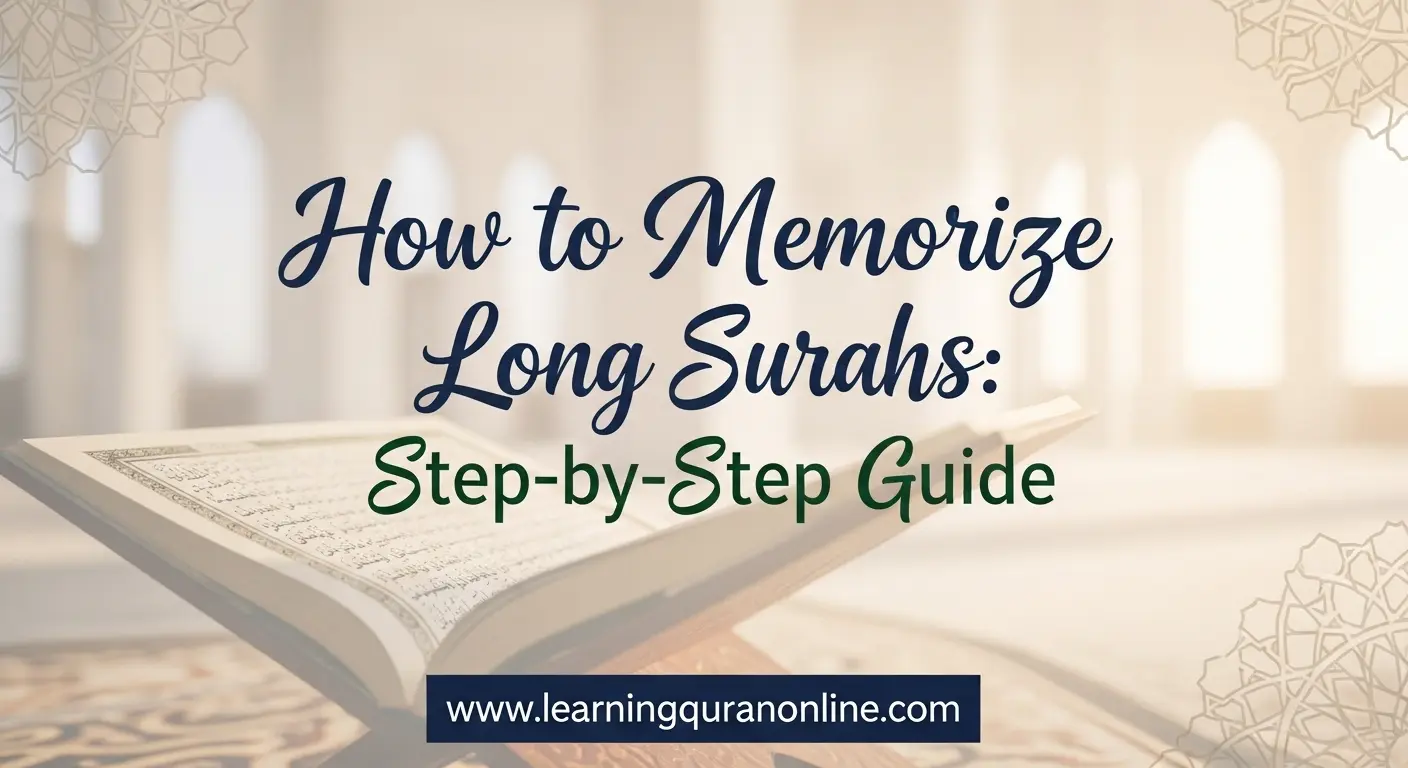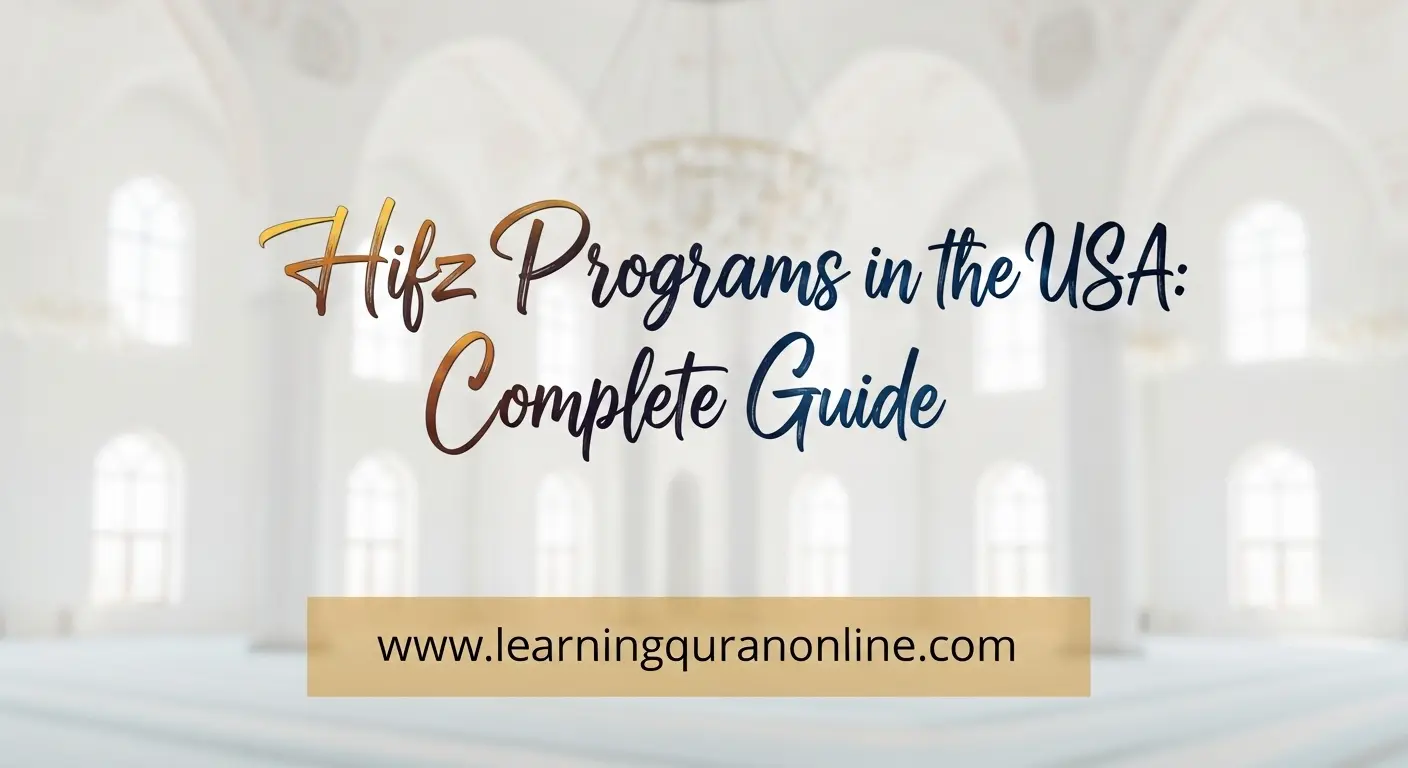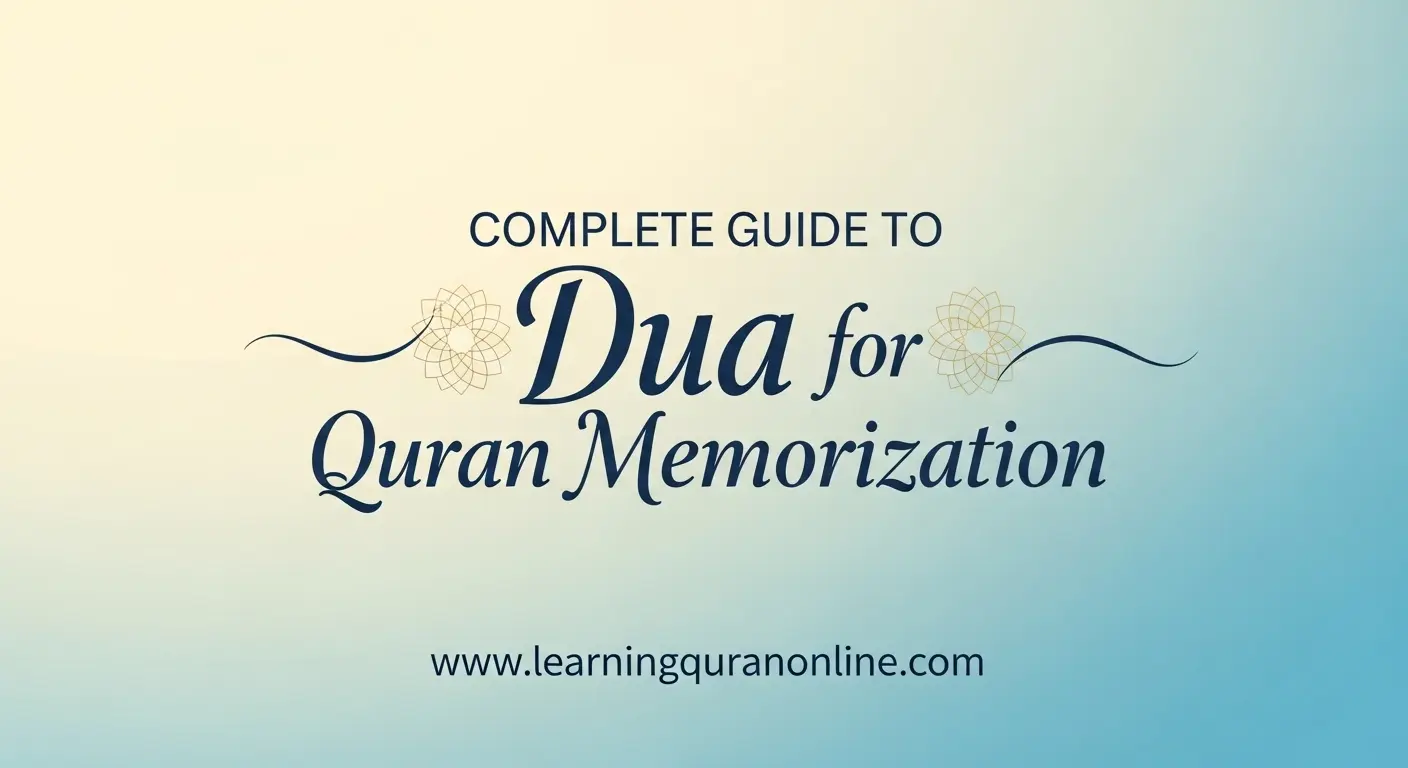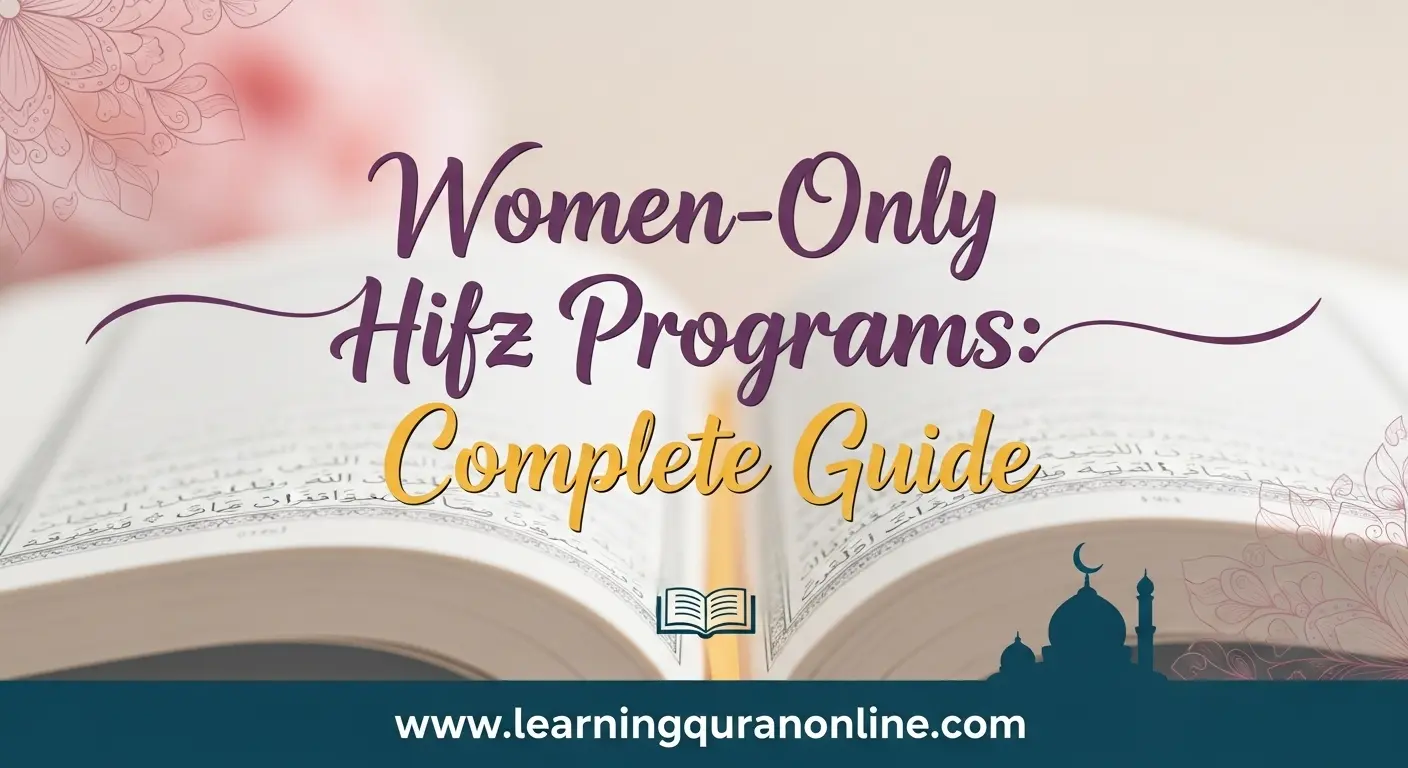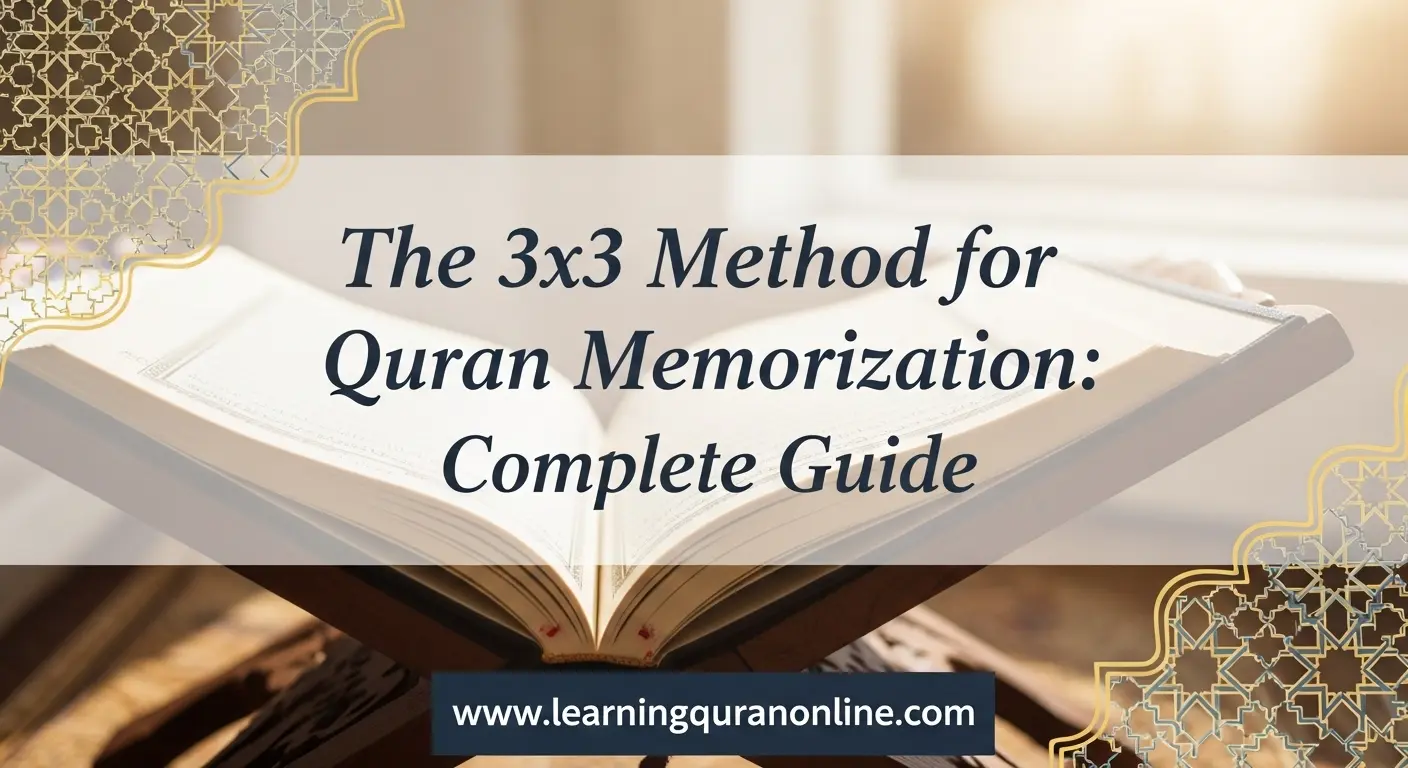Table of Contents
ToggleWhy Choose to Read Quran Online?
Online Quran learning has transformed access to qualified tutors and structured courses. Key benefits include flexible scheduling, access to native Arabic teachers, one-on-one or small-group sessions, and a variety of learning formats such as live video lessons, recorded videos, interactive apps, and digital worksheets. Whether you prefer an “online Quran academy” or individualized tutoring, modern platforms make Quran reading and Quranic Arabic accessible worldwide.
Who This Guide Is For
This guide is designed for:
- Absolute beginners with no Arabic background
- People who can read Arabic letters but struggle with recitation
- Parents seeking online Quran classes for children
- Adults wanting tajweed training, memorization (Hifz) or Quranic Arabic
Essential Prerequisites: What You Need Before Starting
Getting started with read Quran online requires only a few basics:
- A stable internet connection and a device (phone, tablet, or computer)
- Headphones or speakers for clear listening to recitation
- Time set aside for regular lessons and practice
- An open intention and patience — everyone learns at their own pace
Step-by-Step Plan: How to Read Quran Online (Beginner Friendly)
Follow this step-by-step roadmap to move from knowing nothing to confidently reading and reciting the Quran online.
1. Set Your Goals and Intention
Start by defining your goals: do you want to be able to read the Quran fluently, learn proper tajweed, memorize selected surahs, or study Quranic Arabic? Clear goals will shape whether you join general Quran reading classes, tajweed courses, or Hifz programs. Set a realistic timeline and a weekly schedule to stay consistent.
2. Learn the Arabic Alphabet and Sounds
The foundation of reading the Quran is the Arabic alphabet and phonetics. Many online Quran classes teach the letters with sounds and practice exercises. Beginners often begin with a structured primer such as Noorani Qaida or similar phonetic guides adapted for online lessons.
3. Study Noorani Qaida or Equivalent Primer
Noorani Qaida is widely used to teach correct pronunciation, vowel signs (harakat), and basic reading rules. Online tutors will guide you through lessons that include:
- Short vowels (fatha, kasra, damma)
- Sukun, shadda, madd and other signs
- Combining letters into syllables and words
4. Learn Tajweed Basics
Tajweed refers to the rules governing correct Quranic recitation. Early tajweed lessons focus on articulation points (makharij), proper pronunciation (makhraj), and basic rules like idgham, ikhfa, and qalqalah. Many students take an introductory tajweed course online alongside reading practice.
5. Practice with a Qualified Quran Tutor
One of the biggest advantages of online Quran classes is access to native and certified Quran tutors. Look for:
- Native Arabic-speaking instructors or certified Quran teachers
- Experience teaching beginners and children
- Flexible schedules and trial lessons
- One-on-one lessons for faster progress or group classes for affordability
6. Use Audio-Visual Resources and Apps
Pair live lessons with audio-visual tools: recitation recordings from famous reciters, tajweed tutorial videos, and interactive Quran apps. These resources help reinforce pronunciation, listening comprehension, and memorization. Search for “Quran recitation app”, “Noorani Qaida app”, or “tajweed lessons online” to find suitable tools.
7. Read Along and Record Yourself
Active practice helps build confidence. Read aloud during lessons and record your recitation to track improvement. Comparing your recording to a proficient reciter helps you notice subtle differences and correct errors.
8. Memorization (Hifz) and Revision Techniques
If your goal is Hifz, structure your memorization with short daily targets and frequent reviews. Many online Quran academies offer Hifz programs with periodic assessments and revision schedules. Techniques that work well online include:
- Spaced repetition for review
- Small segments (one ayah or half-verse at a time)
- Daily recitation to a tutor for correction
Choosing the Right Online Quran Platform
When choosing a platform or academy to help you read Quran online, compare the following:
- Course curriculum: Noorani Qaida, tajweed, Quranic Arabic, Hifz
- Teacher qualifications and native language
- Class formats: one-on-one vs group; live vs prerecorded
- Trial lesson availability and transparent pricing
- Student reviews, progress tracking, and certificates
One reputable option among many is Learning Quran Online, which offers a range of beginner-friendly programs and experienced tutors. (mentioned for reference)
Practical Tips to Accelerate Your Quran Reading Progress
Here are proven tips to help beginners progress faster:
- Consistency over intensity: short daily sessions beat long irregular ones
- Practice with a native reciter to learn natural rhythm and tajweed
- Keep a journal of mistakes and corrections to track recurring problems
- Use transliteration temporarily—but prioritize Arabic script
- Join study groups or online Quran communities for motivation
- Set small milestones (complete Noorani Qaida, read first Juz, memorize short surahs)
Common Beginner Questions Answered
How long will it take to read the Quran fluently?
Progress varies. Some beginners can read simple verses in a few weeks with daily lessons; achieving fluent recitation with tajweed often takes several months to a few years depending on practice frequency and individual aptitude.
Do I need to know Arabic to start?
No. Many online Quran classes teach Arabic reading from scratch using Noorani Qaida or equivalent methods. Understanding the meaning of Quranic Arabic is a separate skill that you can learn in parallel.
Are online tutors effective for children?
Yes. Many academies specialize in teaching children with interactive lessons, shorter sessions, and child-friendly materials. Look for tutors experienced with young learners.
Tools and Resources for Reading Quran Online
Useful tools for beginners include:
- Interactive Noorani Qaida courses
- Quran apps with audio recitation and translations
- Tajweed video tutorials and downloadable charts
- Online forums and study groups for peer support
- Headphones and a quiet space for uninterrupted practice
Measuring Progress and Staying Motivated
Track progress by setting weekly goals, recording recitations, and seeking teacher feedback. Celebrate milestones, such as finishing Noorani Qaida, reciting a complete juz, or memorizing a set of short surahs. Regular review and consistent feedback from a tutor help maintain motivation and correct mistakes quickly.
Safety, Privacy and Quality Considerations
Choose platforms that protect student privacy and have transparent policies for refunds, cancellations and teacher background checks. Verify teacher qualifications and read student testimonials before committing to long-term packages.
Final Thoughts
Learning to read the Quran online is a practical, accessible path for beginners worldwide. With the right structure — mastering the Arabic alphabet, using Noorani Qaida, studying tajweed, practicing with a qualified tutor, and using multimedia resources — you can progress steadily and confidently. Remember: keep your intention, be consistent, and seek guidance from experienced teachers. Whether your aim is basic reading, tajweed mastery, or full memorization, online Quran learning offers flexible and effective routes to reach your goal.
Ready to begin? Start with a free trial class, pick a schedule that fits your life, and commit to daily practice. The journey of reading the Quran will be transformative both spiritually and intellectually.

